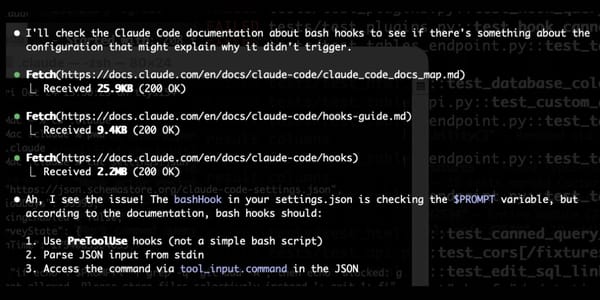Duolingo: How Gamification Turns 95% Free Users into Revenue
Duolingo’s Gamified Growth: How the Green Owl Won the Education App Game
In an industry where paid willingness is low for educational apps, Duolingo has managed to use gamification to attract a huge free user base and close the commercial loop.
This article breaks down its incentive structure, content pace, and conversion path, to explore how the “gamification × education” model achieves growth under a low-barrier, high-retention logic.
---
Personal Experience: Two Years with the Green Owl
As a heavy Duolingo user, I’ve kept up with English lessons for almost two years.
Opening that familiar green owl icon and completing a few lessons each day has become a non-negotiable habit.
Friends often joke: "With Duolingo, once you start, you can’t stop" — and it’s true. Once you get into the rhythm, it’s easy to lose track of time.
While the education sector still debates free models, Duolingo spent 10 years building a $24B valuation, proving that mastering human psychology beats piling on features.
---
The Digital Skinner Box: Creating Addictive Learning
Understanding the Skinner Box
The Skinner box experiment studies operant conditioning — how behaviors are reinforced or weakened by rewards or punishments.
Duolingo’s core philosophy is to use game mechanics to build addiction, essentially creating a digital Skinner box.
---
Example 1 — Progress Bars & Visual Anchors
- Other apps show “3/10 lessons completed.”
- Duolingo uses a percentage progress bar.
- Setting 85% as a visual anchor boosted completion rates by 41%.
- The human brain perceives the last 15% as almost there, triggering a completion impulse.
---
Example 2 — Daily Goals & Instant Rewards
Users set a daily goal, and completing it earns XP, virtual currency, etc.
I started with a 10-minute goal and now voluntarily do 30 minutes daily because of the constant hit of achievement.
---
Example 3 — Emotional Triggers via Mascot Duo
After missing 3 days due to work, I reopened the app to find Duo’s eyes filled with tears — not a cold notification.
This anthropomorphic guilt increased next-day retention 23%, showing emotional design beats rational persuasion.
Key Takeaway: By turning learning into something fun and emotionally engaging, Duolingo lays a strong foundation for monetization.
---
How Duolingo Sells Relief — Not Just Learning
2.1 Free Learning + Paid Translation (Early Model)
Duolingo’s first model combined language learning with translation services:
- User exercises contributed to real translation projects.
- Enterprises paid (e.g., $0.05 per word), funding free courses.
- Result: $2M profit in year one without charging learners directly.
---
2.2 Subscription With a Free Entry
Instead of locking free users out, Duolingo offered:
- Paid perks: no ads + unlimited life points.
- Free users: ads, limited lives, ad-based life recovery.
Data Insight:
Users rewarded with 15 extra minutes after watching an ad had conversion rates 3.2× higher than direct purchase prompts.
This ad-supported tier maintained engagement while nudging toward paying for a better experience — exactly how I converted.
---
The Duolingo Experiment Machine
At Duolingo’s Pittsburgh HQ, a slogan reads:
> "Let God teach; we’ll just run experiments."
---
3.1 UX Driven by Data
Every feature goes through A/B testing with up to 20 variants.
Example: error prompt button color
- Bright red → 14% lower click rate, but 22% higher paid conversion.
- Chosen: deep red — conversion first.
---
3.2 Bizarre Sentences for Memory Retention
Odd phrases like “The elephant drinks beer” are intentional:
- Increase retention rate by 27%.
- 18% of lessons are purposefully nonsensical, boosting dopamine & recall.
When learning English, I’ve found these quirky examples stick in my memory far better than mundane sentences.
---
Three Counterintuitive Rules for Education Apps
4.1 Entertainment Over Instruction
Learning is hard; Duolingo disguises it with fun game elements (life points, badges).
Result: I average 35 min daily without feeling burdened.
---
4.2 The Freemium Profit Core
- 95% of revenue from paid users.
- 90% of them were heavy free-tier ad consumers first.
- Ads build tolerance → ads create desire for premium relief.
---
4.3 Monetizing Emotional Continuity
Example: Streak Undo Feature
- Pay $2.99 to restore a broken streak.
- Generated $1.8M in one month.
- Emotion (guilt/loss aversion) drives spending more than knowledge value.
I paid immediately after losing a near-year streak — the urge to restore progress was irresistible.
---
Final Insight
Duolingo solves the hardest challenge in education:
> Understand human nature as fluid. Channel it carefully. Respect curiosity; don’t kill it with pure algorithms.
While tech debates AI replacing teachers, Duolingo proves the best educational products let users find joy in growth while being entertained.
---
Inspiration for Creators
If you’re building educational or gamified content:
- Learn from Duolingo’s mix of engagement, monetization, delight.
- Use tools like AiToEarn官网 to:
- Generate AI content
- Publish across multiple platforms
- Analyze performance with AI model rankings (AI模型排名)
Supported platforms: Douyin, Kwai, WeChat, Bilibili, Xiaohongshu, Facebook, Instagram, LinkedIn, Threads, YouTube, Pinterest, X (Twitter).
For language learners documenting their journey, these tools help reach global audiences efficiently while monetizing without losing creative control.
---
Sentiment Recap:
After nearly two years of daily use, I understand why so many share the same feeling —
"With Duolingo, once you start, you can’t stop."


